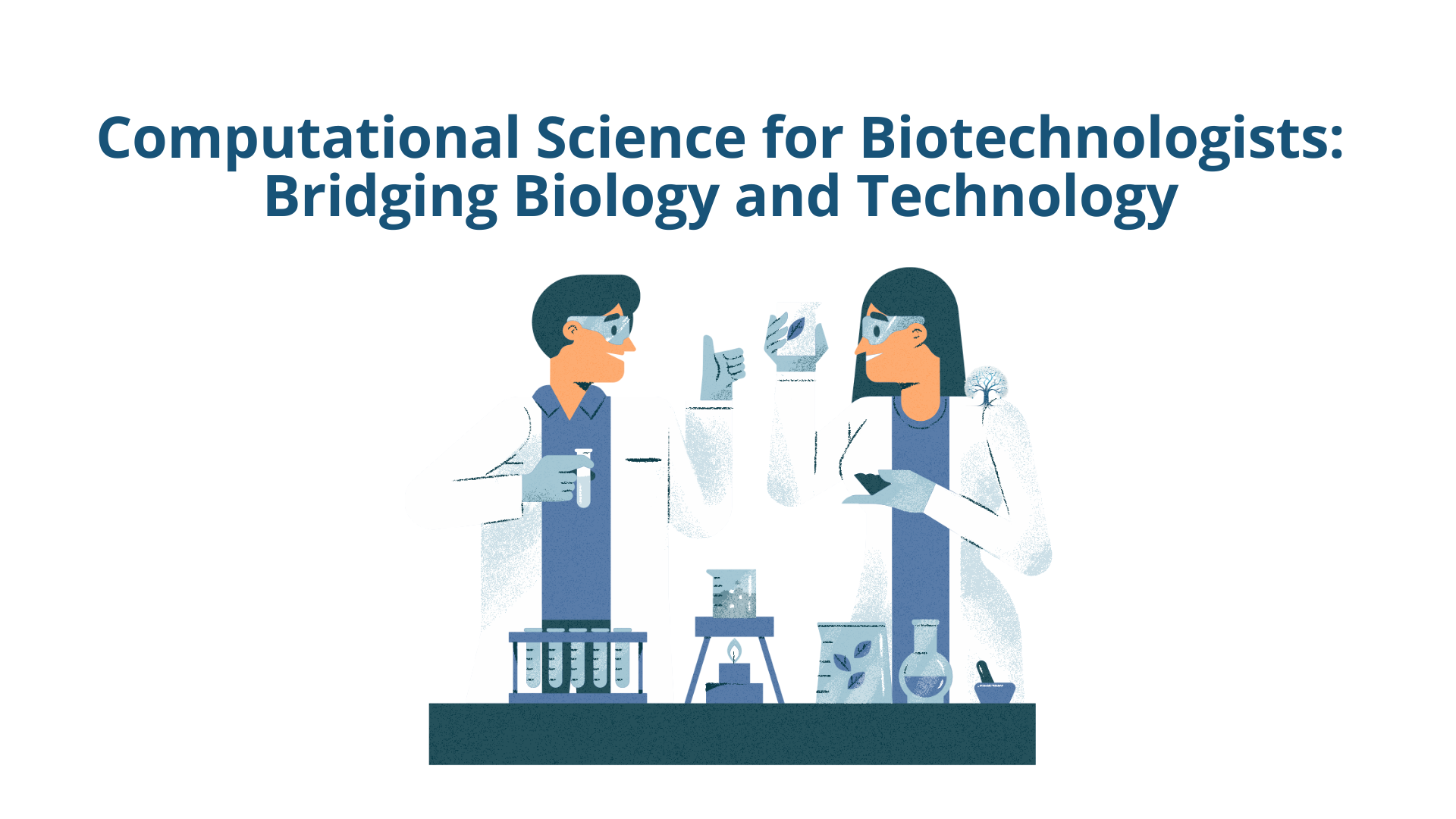Computational Science for Biotechnologists: Bridging Biology and Technology

In today’s fast-paced world, computational science is revolutionizing biotechnology, combining biology, chemistry, and technology to solve complex problems in medicine, agriculture, and environmental science. With the ability to process vast amounts of biological data, computational science is transforming how researchers understand biological systems.
What is Computational Science for Biotechnologists?
Computational science involves using advanced computing techniques to model, simulate, and analyze biological processes. For biotechnologists, this means applying computational tools to biological data, offering insights that were previously unattainable with traditional methods. By integrating bioinformatics, chemoinformatics, and systems biology, researchers can now understand complex biological systems and develop new technologies more quickly and accurately.
Key Applications of Computational Science in Biotechnology
- Genomics and Proteomics
Computational science plays a crucial role in genomics and proteomics, allowing for the sequencing of genomes, gene identification, and protein structure analysis. Tools like Next-Generation Sequencing (NGS) generate vast datasets, which computational algorithms analyze to identify mutations and genetic variability. - Molecular Docking and Drug Design
In pharmaceutical biotechnology, molecular docking techniques predict how drug molecules interact with biological targets. Computer-Aided Drug Design (CADD), using tools like AutoDock and Schrödinger, accelerates the development of new therapies by predicting drug-target interactions and efficacy. - Synthetic Biology
Synthetic biology uses computational models to design and construct new biological systems. By simulating biological circuits, biotechnologists can create organisms with specific traits, such as biofuel-producing bacteria or disease-resistant crops. - Systems Biology and Network Analysis
Systems biology uses computational science to model biological systems as networks of interacting components. This approach helps biotechnologists understand diseases, develop therapies, and improve agricultural biotechnology by predicting how changes in one part of the system affect the whole organism. - Computational Vaccine Design
Computational tools play a key role in vaccine design by predicting immune responses to pathogens. Techniques like epitope prediction and immune system modeling help biotechnologists develop vaccines for complex diseases, such as cancer or rapidly mutating viruses.
Why is Computational Science Critical for Biotechnologists?
Computational science can handle and analyze massive datasets, which is crucial in biotechnology for processing genomic data, protein structures, or complex biological interactions. It allows biotechnologists to:
- Accelerate discovery: Test hypotheses rapidly without time-consuming lab experiments.
- Reduce costs: Narrow down potential solutions before costly trials.
- Enhance accuracy: Provide precise simulations and models for better decision-making.
Challenges in Computational Science for Biotechnologists
While computational science offers numerous benefits, it also presents challenges, such as the need for multidisciplinary skills. Biotechnologists must understand biology, programming, and data analysis. Moreover, managing the massive datasets generated by modern techniques requires expertise in big data management. Developing accurate models also necessitates a deep understanding of both biology and computational algorithms, as small errors can lead to incorrect conclusions.
Biogate’s Role in Computational Science for Biotechnologists
At Biogate, we provide in-depth courses and training programs to help biotechnologists excel in computational science. Our offerings include:
- Bioinformatics: Learn to process and analyze biological data using computational tools.
- Chemoinformatics: Gain expertise in drug design and molecular docking.
- Computational Vaccine Design: Use computational models to predict immune responses and design vaccines.
- Big Data in Biotechnology: Manage and analyze massive biological datasets to extract meaningful insights.
Our courses combine theoretical knowledge with practical lessons, equipping biotechnologists with the skills to thrive in this growing field.
Conclusion
Computational science is transforming biotechnology by making research faster, more accurate, and cost-effective. From drug design to synthetic biology, computational tools are enabling breakthroughs that were once unimaginable. As the field continues to grow, mastering these tools will be essential for the next generation of biotechnologists. Biogate is here to provide the training and resources needed to excel in this exciting and evolving field.